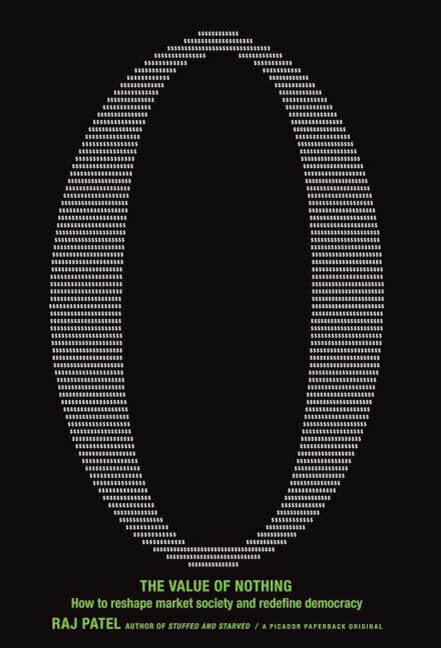Raj Patel: The Value of Nothing

A common cause
Questioning property rights, Oxford-educated World Bank veteran Patel explores the accelerating contemporary trend toward “enclosures,” which he sees as stolen benefits that actually belong to the public. “A genuine democracy,” he writes, involves “moving beyond ownership to stewardship to commoning.”
Patel feels that corporations dismiss the harmful effects of their operations as “negative externalities”—economists jargon for unaccountability of true costs. The free market is supposed to render costs accurately. Patel argues that, in fact, market costs are totally unrepresentative of real costs. A four-dollar hamburger hides untold resource costs kept off the books. Toxic waste dumped off poor countries’ shores? Another failure to measure human costs.
According to Patel, a straight line can be drawn from re-measuring the value of what we consider nothing to enhanced commons rights—the “right to have rights.” This book is a worthy effort to persuade readers that property can, or must, become social again.
GET PASTE RIGHT IN YOUR INBOX
The best music, movies, TV, books, comedy and more.